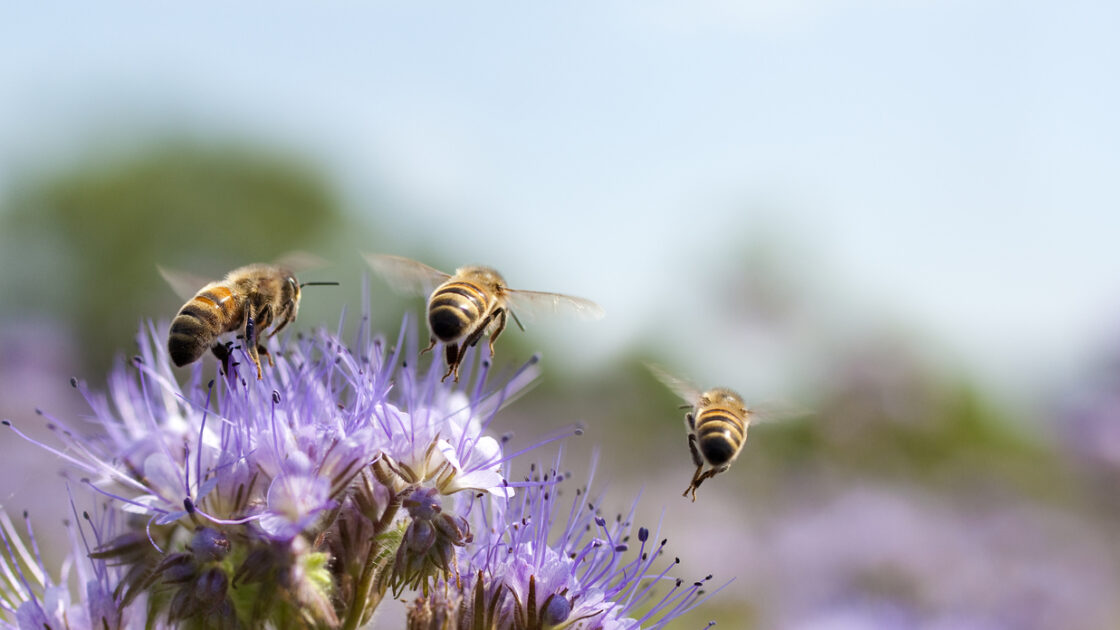Costco Encourages Suppliers to Phase Out Bee-Harming Pesticides

Costco has updated its pollinator policy in order to further encourage the removal of chlorpyrifos and neonicotinoids from its supply chain. The scope of the policy, first developed in 2016, has been expanded to encourage suppliers of fruits, vegetables, and garden plants to limit the use of non-essential chemicals including these pesticides, as well as to use more eco-friendly methods of pest control.
In addition to phasing out these chemicals, Costco is also working with its fresh produce suppliers to encourage the planting of buffer zones, which benefit pollinators. The wholesale chain is also “significantly expanding” its organic offerings; as the organic certification prohibits the use of neonicotinoids and other dangerous chemicals, this also supports pollinator health.
Neonicotinoids are a class of synthetic pesticides, the most widely used in the world. Several studies have linked neonicotinoids to concerns over bee health, including one 2017 research paper that showed that exposure to neonicotinoids further weakened already weak hives and contributed to widespread bee death. In April, the European Union passed a ban on all outdoor uses of neonicotinoids.
Chlorpyrifos, meanwhile, is a toxic nerve agent first introduced to the marketplace as a pesticide by Dow Chemical in 1965. It has notably been linked to development problems in children. While the EPA was set to ban all uses of chlorpyrifos last year, the decision was reversed in March.
“Given the failure of our federal government to regulate the rampant use of toxic pesticides, we are encouraged by the steps Costco is taking to reduce the use of toxic pesticides in its supply chain and increase organic offerings to protect our environment, public health and pollinators,” said Tiffany Finck-Haynes, senior food futures campaigner at Friends of the Earth, which has been working tirelessly to reduce retailers’ dependence on these and other chemicals.
“We urge Costco and other leading food retailers to require suppliers to phase out use of chlorpyrifos, neonicotinoids and other toxic pesticides throughout their supply chains and to help make organic food available to all.”
In its original 2016 policy, Costco wrote that its decision was motivated by the rapid decline of the honey bee population.
“Costco Wholesale understands that the honey bee population is declining and these bees are necessary for the life cycles of people, plants and the food we consume,” wrote the company. “We have invested in a multi-year research project to improve honey bee health and sustainability and are committed to following the continuing research, developments surrounding bee colony collapse and other areas of environmental concern.”
To date, the company has invested over $2.3 million in honeybee research with Project Apis m.
Related on Organic Authority
Alternatives to Neonicotinoids Could Be Even Worse for Honey Bees
New Bee Vectoring Technology Saves the Bees – and Puts them to Work
Dangerous Pesticides Found in 75 Percent of Global Honey Samples

